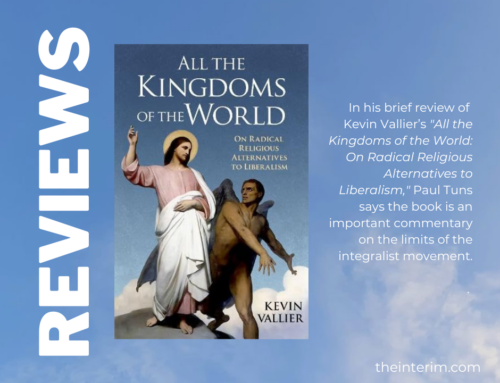 Common Ground by Justin Trudeau (HarperCollins, $32.50, 343 pages)
Common Ground by Justin Trudeau (HarperCollins, $32.50, 343 pages)
Those platitudes may inspire many would-be voters and swooning Liberals but to the critical reader they betray a mind totally devoid of seriousness.
Trudeau talks about the “core values of liberalism” which he lists as “equality of opportunity and diversity of thought and belief” without explaining what he means by those rather vague terms. Indeed, these seem to be core values of conservatism, too.
But what do “diversity of thought and belief” mean when it comes to (Liberal) MPs and abortion? Trudeau rather infamously announced in May, in response to a reporter’s question, that he would no longer allow candidates seeking the Liberal Party nomination to be pro-life.
The controversy that ensued is covered only perfunctorily in Common Ground. Trudeau states in the first chapter that “I believe very deeply in the liberal idea of freedom” and thus he announced “a firm stance in favour of a woman’s right to choose.” As he’s done many times since May, he wraps himself in his Catholic upbringing before declaring that “liberalism is all about” being able to set aside one’s set of religious beliefs “in order to serve Canadians who may not share those beliefs.” It’s standard liberal boilerplate but it’s what passes as deep thinking by the dauphin.
Trudeau addresses “reproductive rights” several times in the book. He says of the 2012 Liberal policy convention that “we made the Liberal Party a truly liberal party when delegates decisively endorsed a motion defending a woman’s right to choose whether to have an abortion.” Later when he talks about Liberal principles, liberal values, and the Charter of Rights, it is very clear even though he does not list what these may be, that abortion is very near the top of the hierarchy of principles, values, and rights. Trudeau relates that when he first ran in Papineau as a candidate, he told obviously religious voters who asked about moral issues that they both approached these matters as core principles and therefore was little room to compromise but that he hoped they would find enough common ground to still support him.
Likewise, same-sex “marriage” is a core value to Trudeau, and illiberally and worryingly he considers these values key Charter and therefore Canadian values. More illiberally and more worryingly he often says that tolerance is not good enough, as he define tolerance as nothing more than putting up with others who are different, sometimes grudgingly; he maintains we must learn to accept differences, although he doesn’t state what that means precisely in terms of policy or the implications for individual behaviour.
Trudeau says “abstract ideals are fine, but in the end we have to live together, and we all don’t believe the same things.” He says we can “go down the path our ancestral countries and cultures have walked (rancour, conflict, and violence) or we can figure out a new, more productive and generous way to live together.” The problem with these statements is that 1) he does not put forward his ideas about how to do that, 2) he is guilty himself of uttering abstractions with some regularity, and 3) his actions banning pro-lifers from running as Liberals or forcing them to violate their conscience, suggests that the path to making it work is to follow his abstract ideals no matter what.
Trudeau no doubt hopes to make a serious and good impression with his memoirs, but to the discerning reader he will come off as shallow. He does not offer a clear and compelling vision of how he would govern Canada, but if his actions are any indication, he would offer a liberalism that betrays the freedom and pluralism he purports to value. So while bland, perhaps Common Ground provides real insight into the mind of the would-be prime minister. It’s a chore, but if one is guarded against the puffery, reading Trudeau’s memoir will gird one for the fight against a radical and intolerant liberal. Whatever sins Harper is guilty of, and Trudeau is very keen to rail against the Conservative Prime Minister’s threat against democratic principles, it is obvious that Trudeau is not the solution to Canada’s problems.
Paul Tuns is the editor of The Interim and author of Jean Chretien: A Legacy of Scandal.




